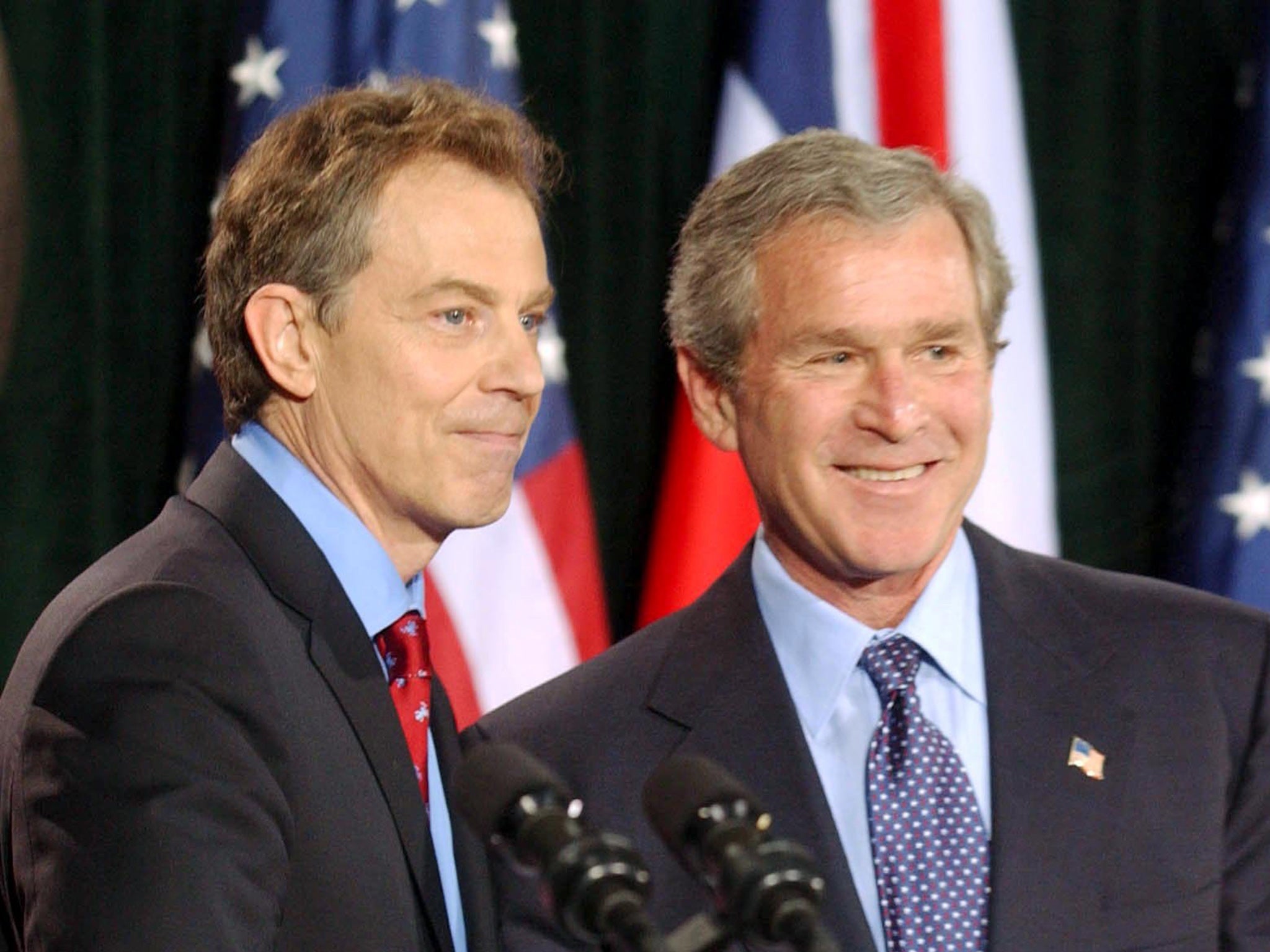Americans don't care about the Chilcot report - their anger at Bush subsided long ago
One of Blair’s correct observations – in a letter to Bush setting out his political difficulties at home – was that “people just don't have the same sense of urgency post 9/11 as people in the US"


Sir John Chilcot and Donald Trump have one thing in common. In their utterly different ways, they share misgivings about what happened in Iraq.
Britain went to war on the basis of flawed intelligence “before every peaceful option had been exhausted”, and military action was “not the last resort”, the former civil servant has soberly concluded. Speaking at a campaign rally a few hours before Sir John’s report, Trump – who has declared the world would be “100 per cent better off” if the likes of Saddam Hussein and Muammar Gaddafi were still around – conceded the Iraqi dictator might have been a bad guy. “But you know what he did well?” asked the Republican presidential candidate. “He killed terrorists. He did that so good.”
But there the tenuous similarities end. Britain yesterday appeared convulsed by fury and vindictiveness, largely directed at one man, Tony Blair. Here by contrast the Chilcot report has generated so far nothing but deafening silence, despite its being the most compendious postmortem yet on the the biggest single foreign policy blunder by the US since Vietnam – maybe an even bigger blunder than Vietnam.
The sins of the Americans were the sins of the British, magnified tenfold: the breakdown of intelligence, or rather its wilful trampling by politicians bent on war; the scandalous lack of planning for the invasion’s aftermath; the wrongheaded decisions to disband the Iraqi army and de-Baathify Iraq’s civic administration; the war crimes exemplifed by Abu Ghraib; the conflict’s cost in blood (most of it Iraqi) and treasure ($2 trillion and counting) – not to mention the geopolitical damage; from the rise of Sunni Islamic extremism and ISIS to the unwitting but entirely predictable boost to Iran’s influence in the region. Both flowed from America’s misbegotten adventure in Iraq.
Just as in Britain, Iraq was a colossal collective failure by the ruling US establishment and elites. Remember the supine votes of Congress giving George W. Bush carte blanche for his war, the derision heaped upon the few dissenting voices like Brent Scowcroft, Bush senior’s national security adviser? Or the stream of erroneous reports in The New York Times no less, hyping Saddam’s WMD threat?
But America has moved on. The country’s attention span is famously short. The focus now is on a tumultuous presidential election now just four months off, for which the nominating conventions are days away. The repercussions of Hillary Clinton’s email let-off by the FBI dominate the headlines and cable news, interrupted only by uproar over a new killing of a black man by white police, this time in Louisiana. Iraq, who cares? It’s history.
But it isn’t history, and America should care. For one thing, some 5,000 US troops are now back in Iraq, “advising” the Iraqi government and army on defeating Isis. The country is in chaos, epitomised by the latest carbombing in central Baghdad in which 250 Iraqis have died, an atrocity claimed by ISIS and whose ultimate cause is the invasion.
Up to a point, America’s seeming indifference now can be defended. One of Blair’s correct observations – in a letter to Bush setting out his political difficulties at home – was that “people just don't have the same sense of urgency post 9/11 as people in the US.” Iraq flowed from the 2001 terrorist attacks in New York and Washington. Britain experienced nothing similar until July 7, 2005, and then on a far smaller scale. The intelligence supposedly linking Saddam with al-Q’aeda was as flawed as that over the WMDs, but Bush and especially his vice-president Dick Cheney hyped it relentlessly.
Yes, the US hasn’t set up its own Chilcot process, for a total accounting of the war. But there have been dozens of investigations, by Congress, the Pentagon and other bodies, as well as countless books, almost all of them reaching similar, if less exhaustive, conclusions as Chilcot. Then there was the 9/11 Commission report of 2004. Admittedly, this last did not directly deal with the Iraq invasion, but it authoritatively debunked the Bush administration’s suggestions, then accepted by a majority of Americans that Saddam was somehow involved with 9/11.
Raw anger towards George W Bush, akin to that currently directed at Blair, has mostly long since subsided, helped by the public praise and honour routinely heaped upon the military here, something inconceivable in Britain. The 43rd president, we are told, will spend Chilcot day, his 70th birthday, biking with wounded veterans. Nonetheless reputations have been shattered, probably irreparably.
Bush will be forever remembered as the Iraq War President. Dick Cheney’s place in history’s villains’ gallery is assured by his role in the conflict’s great enabler. So is that of Donald Rumsfeld, Secretary of Defense and ruthless Washington operator who gave a lesson in how not to run a war. Colin Powell’s services to his country are numerous. But he will be forever remembered by his UN speech selling the phony intelligence about Saddam’s WMD.
But none of this, any more than John Chilcot’s huge and worthy tome, guarantees what is most important: that a scandal like Iraq never happens again. Nobody does setpiece postmortems like the British. If only similar thoroughness were used to stop such scandals before they happen. As George W. Bush would put it, a bit of pre-emptive action.
Join our commenting forum
Join thought-provoking conversations, follow other Independent readers and see their replies
0Comments